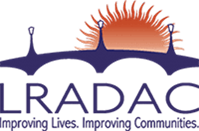[vc_single_image image=”8343″ img_size=”full”]Columbia, SC – With over 3 million confirmed cases and approximately 140,000 deaths in the United States alone, the coronavirus pandemic has caused unprecedented health and safety concerns for nearly every part of our society. In South Carolina, the pandemic continues its march across the Palmetto State with nearly 50,000 confirmed cases and a death toll that has continued to rise throughout the summer. But beyond the death and illness associated with the coronavirus itself, there’s also been an alarming rise in drug overdoses that many experts believe can be directly attributed to the pandemic.
Suspected overdoses nationally — not all fatal — jumped 18% in March compared with the same time last year, 29% in April and 42% in May, according to the Overdose Detection Mapping Application Program, a federal initiative that collects data from ambulance teams, hospitals, and police. In South Carolina, suspected overdoses numbered 915 in May compared to only 540 from the same time last year—with Richland and Lexington Counties both placing in the top 10 counties by count.
Jeremy Martin, Vice President of Treatment & Intervention of LRADAC, believes that the last several months of social distancing has played a big part in the recent uptick of substance misuse and overdoses. “The pandemic has certainly created anxiety for many people,” said Martin. “But when you add in social distancing, people who misuse substances don’t have access to their normal support networks and/or activities that help curb use.”
Martin says that despite the last several months of limited operations, LRADAC has been able to adapt treatment for its patients while overcoming the social distancing barriers created by COVID-19. “Many people believe that service providers like ours have shut down operations and others are simply confused about how to access our services,” said Martin. “But we want to remind the public that LRADAC has continued to offer a wide array of prevention, intervention, and treatment programs throughout the pandemic and we will continue to do so into the foreseeable future.”
One of the important services that LRADAC offers patients who misuse or who are at risk of overdose is medication-assisted treatment. “Just like many other medical diagnoses, some treatments include medications,” said Martin. “Medications have been effective treatment options for centuries, and we want people to realize that medication-assisted treatment (such as buprenorphine or Suboxone) can be very effective in the treatment of substance use disorders and can support individuals in long-term recovery.”
Along with medication-assisted treatment, LRADAC also offers many other services including medically-monitored withdrawal management (detox) for adults throughout South Carolina; as well as individual and group counseling for children, teens, young adults, adults, and seniors; and numerous substance use prevention and awareness programs for youth, families, schools, and communities in Richland and Lexington Counties.
“We realize that the coronavirus has caused a host of challenging issues in nearly every aspect of life,” said Martin. “But LRADAC is here to help our communities through this pandemic and beyond with pathways to recovery and hope for tomorrow.”
If you or someone you love needs treatment, please contact LRADAC at 803-726-9300 to be connected to our COVID-19 modified intake process.
LRADAC has Narcan available for free for patients and/or individuals who have a loved one in need to help reduce the risk of overdose from coming in contact with opioids. To obtain Narcan, contact LRADAC’s withdrawal management services at 803.726.9390. To learn more about LRADAC’s other drug prevention and treatment programs, visit www.lradac.org.
To read more, visit https://www.thestate.com/news/coronavirus/article244222742.html.

